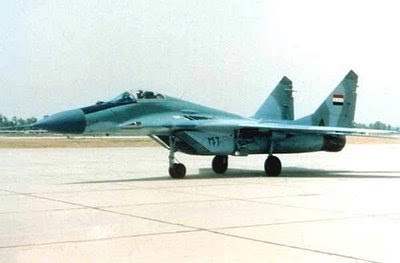 AP Photo - A rocket fired by Palestinians militants in the Gaza Strip flies towards an Israeli target as seen from the Israel-Gaza broder in southern Israel, Tuesday, Dec. 30, 2008.
AP Photo - A rocket fired by Palestinians militants in the Gaza Strip flies towards an Israeli target as seen from the Israel-Gaza broder in southern Israel, Tuesday, Dec. 30, 2008.
Israeli leaders will meet tomorrow to consider a four-day truce with Hamas, in essence halting its air campaign in return for a cessation of Hamas rocket launches into southern Israel. This is exactly what Hamas wants and what it has counted on since it provoked the Israelis into the military option over the last few weeks. Hamas knew full well the world reaction of far beyond the Arab and Muslim countries.
Calls for restraint and a cease-fire from the European Union and the United Nations seem to be having an effect in Tel Aviv. Israel may be on the verge of the same mistake it made in 2006 in the conflict with Hizballah - caving in to international pressure before its objectives were met.
Public opinion will never be on the side of the Israelis, as evidenced by the almost universal lack of condemnation of Hamas's near continuous rocket attacks on civilian populations in southern Israel. Israelis should realize that no matter how justified they believe themselves to be, most of the world is not going to support them. Accept that and act in Israel's best interests. Right now, Israel's best interests are the degradation of Hamas's capability to indiscriminately target 10 percent of Israeli citizens.
What harm could there be in showing good faith and pausing air operations for four days, a mere 96 hours?
Plenty. A four-day halt to the pressure Israel has been able to exert on Hamas will benefit only Hamas. Israel does not need a halt - they are steadily degrading Hamas's offensive capabilities and demonstrating to the Gazans that finally Israel is serious about stopping the rocket attacks. Hamas, on the other hand, needs the break in the bombing attacks to regroup and try to reconstitute itself. The break will give it the opportunity to try to smuggle more arms into the Strip via Egypt, the opportunity to reposition hidden rocket stocks to launch positions, and the opportunity to move assets and personnel to locations unknown to the Israelis.
Hamas has continuously refused to recognize Israel's right to exist and reiterated calls for the destruction of the Jewish state. That does not appear to have changed. It welcomes a four-day breather to allow itself to keep on fighting in the future.
Hamas has this figured out. It will agree to a four-day breather. At the end of that period, the Israelis will be in the position of having to sit and wait until Hamas violates the cease-fire. As long as the Israeli air force is poised to resume operations and there are thousands of Israeli troops just waiting for the word to invade, Hamas will not strike.
Hamas will not strike immediately, but it will be in the driver's seat - knowing full well Israel cannot afford a long period of inactive mobilization. It will simply wait until the Israelis stand down, and resume the attacks on Hamas's timetable.
My advice to the Israeli leadership: Don't do it. Stop only when you have achieved the elimination of either Hamas's capability or desire to fire rockets into Israel.











